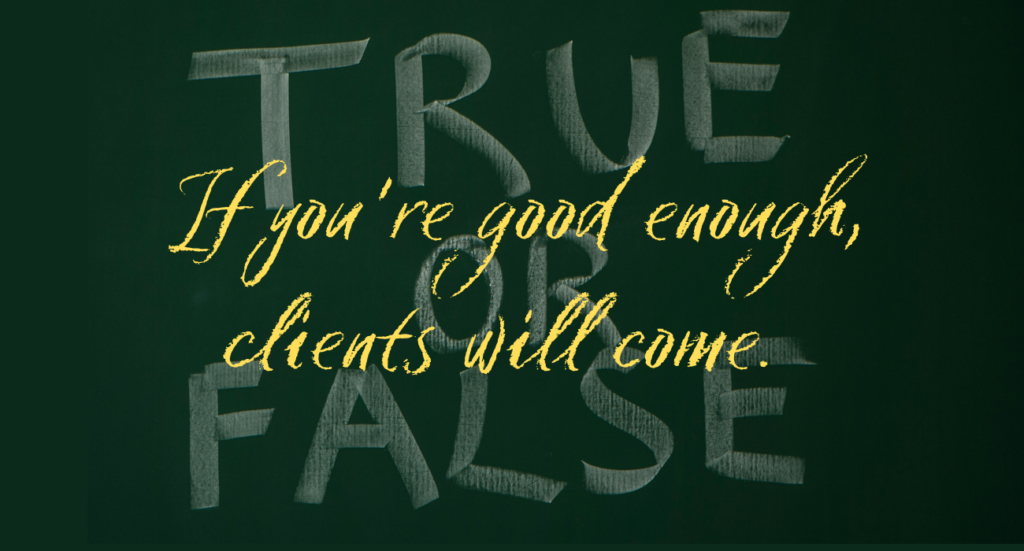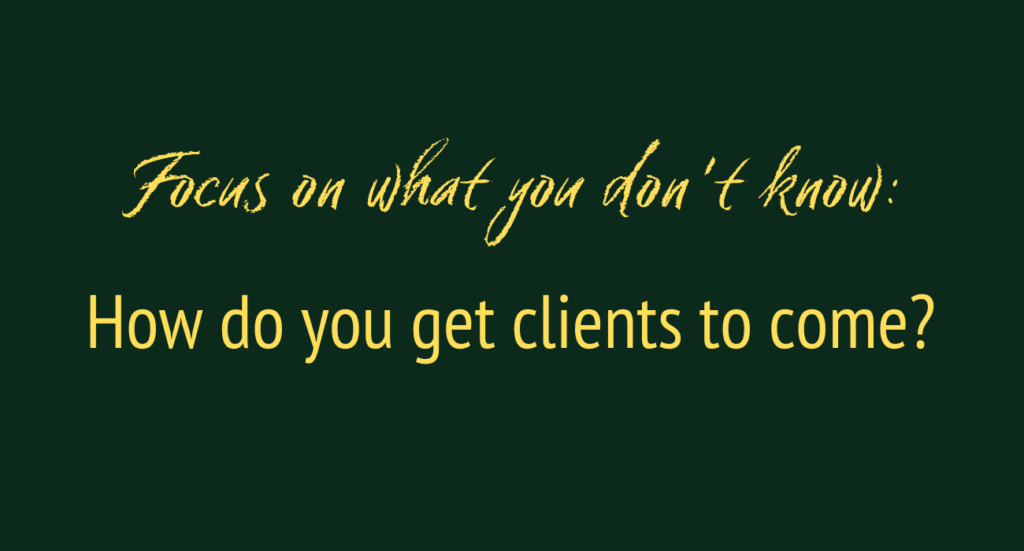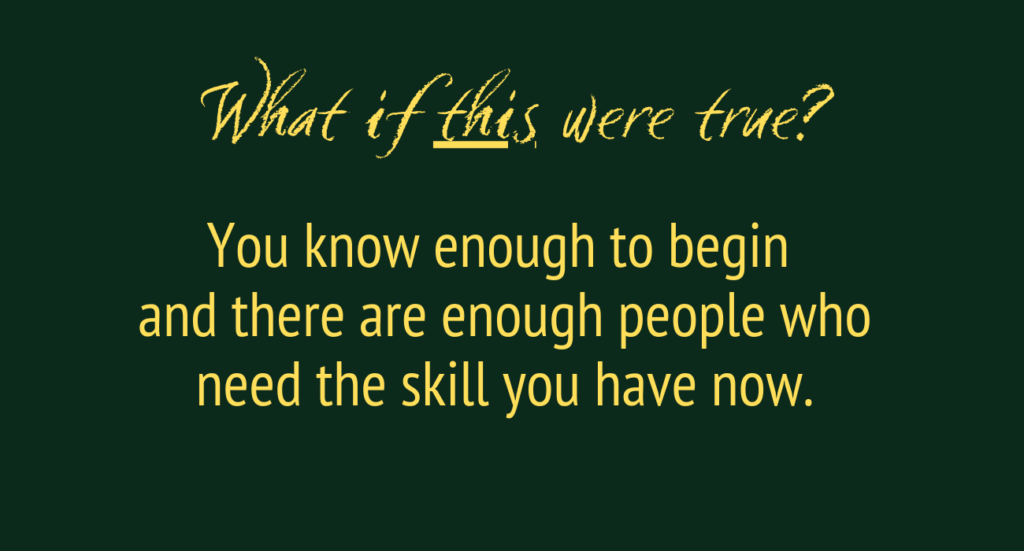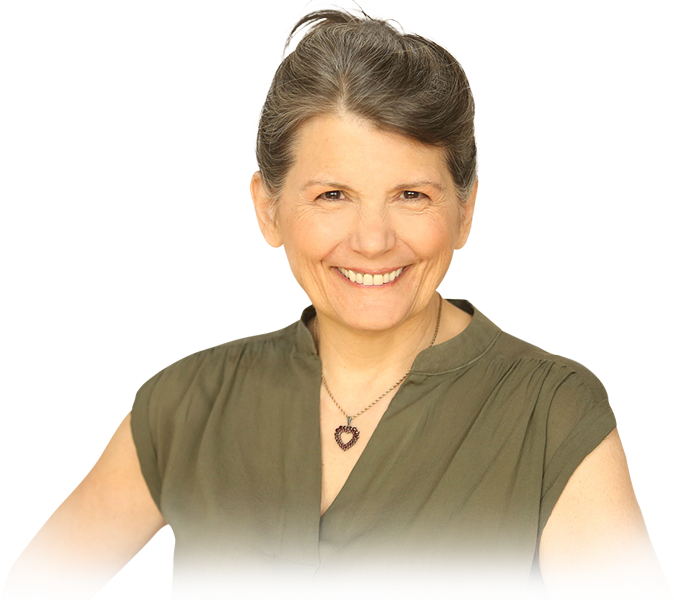
There’s a saying in the Feldenkrais world… and if you practice another modality, maybe you’ve heard it in your world, too.
If you’re good enough, people will come.
Do you believe it?
If you do, how has it affected your practice, and more importantly, how has it affected the way you see yourself as a person?
Me? I Don’t Believe It
It’s a myth—a widely held but false belief that I’ve heard repeated over and over:
If you’re good enough, people will come.
This idea isn’t just wrong… it’s insidious.
Let’s unpack two reasons why this is so.

1. You look in the wrong place
If you buy into this myth, you come to believe that people are attracted to you simply because you have attained a certain level of skill.
That leads to trying to solve the problem by getting more training—not necessarily a bad thing because all of us can learn more, go deeper, and refine our skill.
However, if your problem is a lack of clients, it’s important to realize that you’re looking for what you need in a place that isn’t intended to provide that kind of help.
Every advanced training gives you new knowledge, new ideas, new ways of seeing your clients, and new skills to practice.
But I’ve yet to see any advanced training, in any modality, anywhere in the world, that promises your attendance will result in more clients in your practice. And why should it? None of the outcomes modality-based advanced trainings are designed to achieve have to do with learning how to do what it takes to get people into your practice.
Not only that, putting what you learn into practice means… well, practicing.
Seeing your clients in new ways is only possible if you’re seeing clients.
Embedding new skills requires using those skills and trying them on lots of people to see how they play out and how they shift as you make them your own.
All of this means that if you don’t have enough clients when you sign up for an advanced modality training, there’s an extremely low probability that you will be able to use what you learn when you get there—let alone attract new clients with it.
The unfortunate result is that you continue to accumulate knowledge without using it, and the skills you need to refine remain unchanged; they stagnate instead of growing.
Equally problematic is that the more invested you become in going in the wrong direction, the harder it is to see the direction that would take you where you want to go.
So what does work?

If you don’t have enough clients, focus on what you don’t know: how to get clients… how to attract them into your orbit, nurture them, and then enroll them.
And remember:
These are not the skills of your modality.
They’re the skills required to create a business that will support you.
2. It’s a logical trap
The second reason this myth is so insidious is that it can have a terrible effect on how you see yourself, both as a person and as a practitioner.
That’s because when you negate and reverse the two parts of an “if-then” statement, both statements say the same thing. If you accept one statement as true, you are implicitly accepting the other as true.

If you’re good enough, people will come.
… is exactly the same as
If people don’t come, you aren’t good enough.
If you’ve accepted the first statement, you’ve accepted the second one. Even if you don’t consciously recognize it, it becomes part of your inner processing because it’s logically consistent.
And while the first statement is aspirational, the second is demoralizing.
If you believe the first statement, you cannot ignore, dismiss, escape, or choose NOT to believe the second one.
This puts you in a difficult relationship with your inner voices, because even if you try to wriggle out of it on a conscious level, they get exactly what it means. Instead of being a reliable and consistent support for building your practice, they are likely to become a constant drain that saps your energy along with your confidence.
To reject the second statement, you have to reject the first one.
It’s not that being a good practitioner is unimportant… it’s that being a capable practitioner is only one factor in building a solid practice.
If you believe it’s all that’s required, you limit your options for getting clients. You limit what you are interested in learning. You limit your income. You limit the help you are able to offer to people who need you.
And if you take one advanced training after another but you still don’t get more clients, you severely impact the way you view yourself as a practitioner and risk eroding your self-confidence.

What if this were true instead?
Graduation from a practitioner training program means your trainers believe you have enough knowledge and skill to begin… and there are enough clients who need the help you can give at that time, for you to make a living.
What if you believed that your trainers knew what they were doing when they said you were ready, and that at every level of your ability, there are people who need your help?
What would change?
What would have to change in you, in order for you to embrace it whole-heartedly and show up in the world as if it were true?

